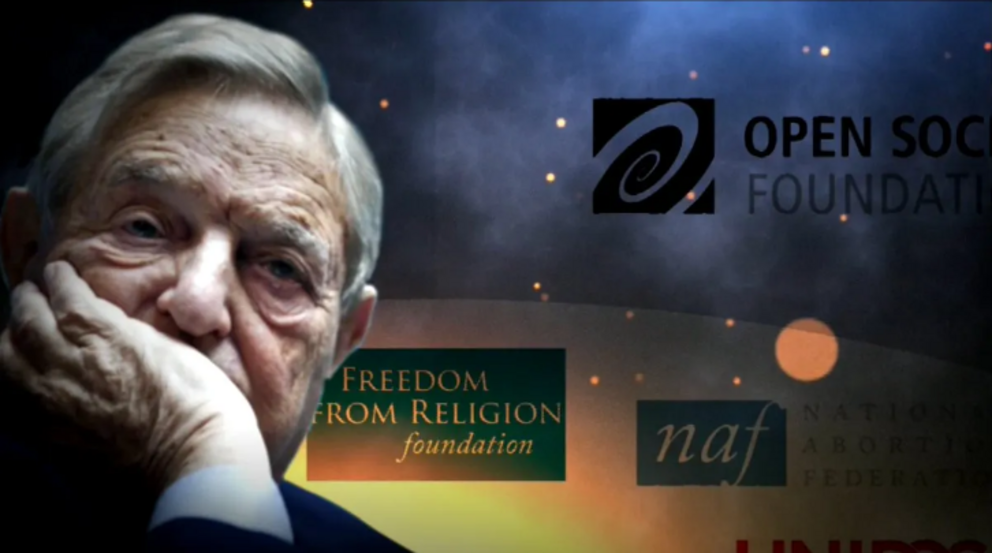How the British invented George Soros
Puppetmaster or Puppet? Strongman or Frontman? Inside the Soros Psyop
SUMMARY: Is Soros really the Puppetmaster? Or is he just a psyop, a front for British economic warfare operations? The man who created the Soros legend was Lord William Rees-Mogg: prominent British journalist; friend and confidant of the Royal Family; close friend and business associate of Lord Jacob Rothschild; and father of British politician Jacob Rees-Mogg.
IN 1993, many in Europe felt betrayed.
Some grumbled about an “Anglo-Saxon plot.”
Britain had rejected monetary union with Europe, saying she would stick with the British pound.
Tempers flared. Tongues loosened. Rhetoric was starting to get downright racial.
“There is a kind of plot,” said Belgian Foreign Minister Willy Claes. “In the Anglo-Saxon world, there exist organizations and personalities who prefer a divided Europe."
“Anglo-Saxon financial institutions” are undermining Europe’s efforts to unify currencies, charged Raymond Barre, France’s former Prime Minister.
Speaking before the European Parliament, Jacques Delors, President of the European Commission, railed against “les Anglo-Saxons.”1
Not since Napoleon’s cuirassiers charged the British lines at Waterloo had the French-speaking world exploded in such fury against perfidious Albion. Tensions were escalating dangerously.
Not to worry, though.
Help was on the way.
The Soros Psyop
Into the breach stepped Roger Cohen, born and raised in England, educated at Oxford, but now writing for The New York Times.
Cohen slyly changed the subject.
He called Willy Claes’s office and asked spokesman Ghislain D’Hoop to please identify the “Anglo-Saxon” plotters.
There were many, D’Hoop replied. But one was George Soros.
D’Hoop had stepped into the trap.
He had given Cohen what he wanted.
In a September 23, 1993 article in The New York Times, Cohen noted wryly:
“But Mr. Soros hardly fits the traditional definition of an Anglo-Saxon. He is a Hungarian-born Jew who speaks with a noticeable accent.”2
Cohen had deftly changed the subject.
Instead of an “Anglo-Saxon plot,” Cohen now offered a George Soros plot.
In a 900-word article which purported to discuss Europe’s currency crisis, Cohen devoted a third of the piece to Soros, ruminating at length about the unfair “opprobrium” Soros had endured for shorting the British pound in 1992 and the French franc in 1993.
While Cohen pretended to defend Soros, his article had the opposite effect.
Cohen actually drew attention to Soros, making him the centerpiece of a story that was not about Soros at all, or at least shouldn’t have been.
Cohen had thus deployed one of the most powerful weapons in Britain’s psywar arsenal.
I call it the Soros Psyop.
For the rest of this article please go to source link below.

